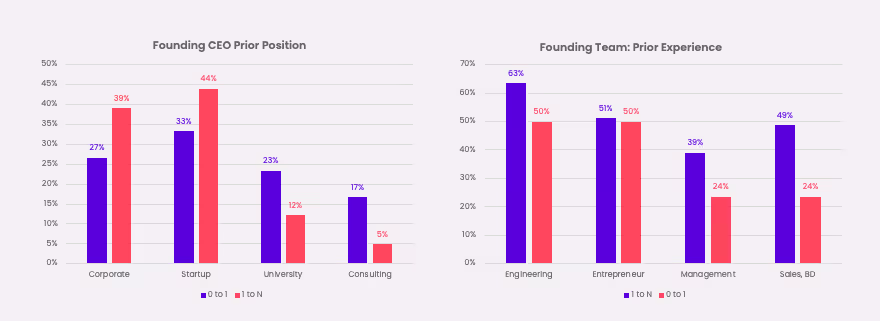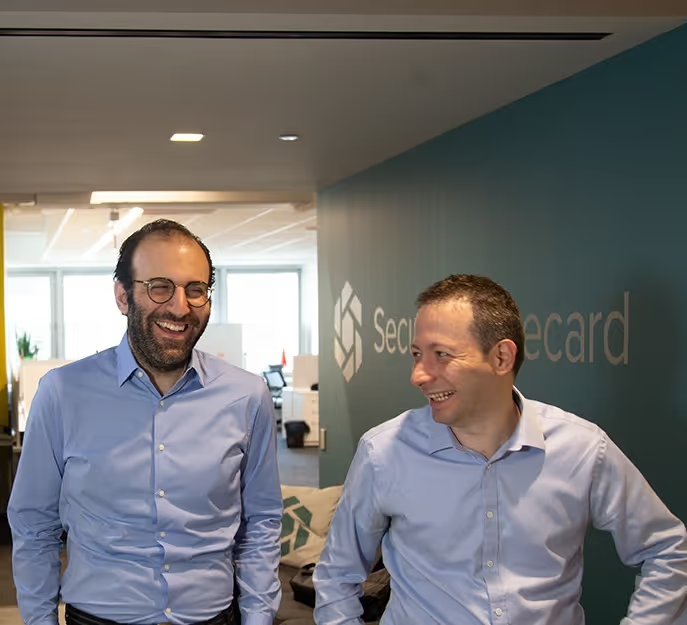Listen now
What do Bill Gates, Mark Zuckerberg, Elon Musk, Larry Page, Sergey Brin and Michael Dell have in common? These founders of Microsoft, Facebook, Tesla, Google and Dell have created pathbreaking technology firms together worth $4 trillion. They also founded companies in college.
Investors prize experience and prior success among entrepreneurs they back. Early-stage investors focus on Founder Market Fit as the primary indicator of success among startups. One industry observer highlighted eight signs that an entrepreneur has a strong Founder Market Fit. These eight attributes rely disproportionally on prior experience referring to industry and market know-how six times:
1. You have been working in your industry for several years
2. You have a large network in your industry
3. You have held different roles in your industry and understand the key players
4. You have lived and breathed the problem you are solving firsthand and deeply understand the pain points
5. You can speak fluently about your industry and the problem you are solving
6. You understand the current and future competitive landscape of your industry
7. You identify with your customer because you have either been your own customer or have conducted extensive research analyzing your early cohorts
8. You have become obsessed with the problem you are solving and have been relentless in learning everything about the market
Yet an investor who adheres to these indicators unerringly would have missed many of the iconic technology companies of our generation. Of greater consequence, many high-potential companies may be stillborn if inexperienced, yet promising founders cannot raise seed funding due to systemic investor bias.
Founder Opportunity Fit v. Founder Market Fit
Successful venture-backed companies offer a useful lens on Founder Fit. Since initial public offerings (IPOs) are the holy grail for both venture investors and entrepreneurs, I reviewed founding teams of recent IPOs for common founder traits among these companies. Recent IPOs offer a rich data repository as a record 1747 companies went public on U.S. exchanges from 2019 to 2021. Within this group I focused on 162 cofounders from 75 newly minted publicly held unicorns, or companies exceeding $1 billion valuation, among venture-backed information technology companies.
The founding CEOs of these newly minted unicorns were young averaging less than 32 years old and had eight years of work experience when launching their startups. One-third of the founders had no prior industry experience, and their companies represented nearly half of the $800 billion combined market value as of October 2022.
Prior experience varied widely among founding CEOs seemingly benefiting founders in some cases and not in others. CEO experience was more consistent when startups were divided into two groups based on incremental and radical innovation. Founders promoting incremental innovations were six years older and had over four times more industry experience on average than founders of startups promoting radical innovation. My findings suggest that incremental innovation benefits from industry experience, while disruptive innovation tends to come from outsiders unencumbered by standard industry practice.
Founder insight, not experience, was the shared trait among these successful startups. Founders consistently spoke of insights that drove them to launch their successful startups in over forty hours of interviews with founders of these recent IPOs. Insights emerging from industry experience were a reliable guide for incremental innovation. Disruptive innovation emerged from founders outside the industry leveraging lead user insight or first principles thinking to identify overlooked opportunities or see known problems from a different perspective.
Founder Market Fit emphasizes industry experience, which is relevant for incremental innovation but not disruptive innovation. It is not surprising that investors readily funded experienced founders pursuing incremental innovation but consistently rejected inexperienced founders pursuing disruptive innovation. Half the founding CEOs with little or no prior industry experience indicated they had difficulty raising early funding, while over three-quarters of experienced founders were readily funded.
Experience: Incremental v. Disruptive Innovation
In his seminal book Zero to One, Peter Thiel distinguishes between Zero to One and One to N innovation. Zero to One refers to disruptive technology that creates a new order of things, while One to N indicates incremental innovation that improves on existing technologies and practices. While disruptive Zero to One innovation is prized by venture investors, incremental One to N innovation can also produce significant outcomes as new generations of cybersecurity, software and hardware companies illustrate.
The distinction between disruptive and incremental innovation helps resolve the conundrum of founder experience. My research suggests that incremental innovation is empirically oriented and benefits from industry experience, while disruptive innovation involves first principles of thinking independent of experience.
Founding CEOs of the 41 One to N companies reviewed were on average 34.8 years old when they launched their startup in our sample compared with 28.5 years old for the 34 Zero to One companies. One to N founders were over six years older, had over four times more industry experience (8.6 years v. 2 years), and over two times more technology experience (11 years v. 4.3 years) than founders of Zero to One companies. Figure 3 illustrates the difference showing industry and technology experience for the top ten companies by market value in each category.

The Outsider’s Advantage
Disruption emerges from industry outsiders: 62% of CEO founders in Zero to One startups had no prior industry experience. Disruptors are iconoclasts who see things differently, who see opportunity in challenges, who are untamed by industry norms and undaunted by subverting industry incumbents.
My research finds that outsiders are more likely to identify linkages from other industries, see overlooked gaps in the market, and reimagine businesses from a first principles perspective. As shown in Figure 4, 44% of founders of disruptive startups attributed their inspiration to insight as frustrated users or customers. The catalyst for innovation in other disruptive startups split evenly from industry experience, university coursework, first principles thinking and adaption from other industries.

Adaptability is vital to startup success as they operate in fast-changing, uncertain environments. This is especially true for disruptive innovation. Almost half of Zero to One startups pivoted prior to reaching product-market fit, more than twice the rate of One to N startups.
Half of founding CEOs in their twenties pivoted their business, again more than twice the rate of their peers over thirty. While inexperience may account for some needed adjustments, youthful flexibility may be an adaptive trait in navigating successful startups through the uncharted waters plied by disruptive startups.

While disruption favors an outsider’s perspective, prior industry experience guides incremental improvement in One to N startups. Founding CEOs of One to N startups had on average 8.6 years of prior industry experience and 11 years in the technology industry. Over 80% of founding CEOs of One to N companies had prior industry experience, and most sourced their startup idea from this experience.
Selling to large enterprises favors established industry networks, know-how and go-to-market strategies. Unsurprisingly, CEOs of startups selling to large enterprises had more industry experience, while younger founders more often targeted small and medium-sized companies where incumbency advantages are lower. Other benefits of industry experience include networks from which to tap top talent, credibility to attract early adopters and market awareness to help strategically position the business.
We have now established that industry experience is an unreliable indicator of startup success. Experience is an ally for incremental innovation but obstructive to disruptive innovation. Investors nonetheless agree that founders are the most important determinant of startup success. By what criteria then does one assess Founder Fit? In the next blog, I’ll dive into my ‘Founder Opportunity Fit framework’.

.svg)






.svg)






